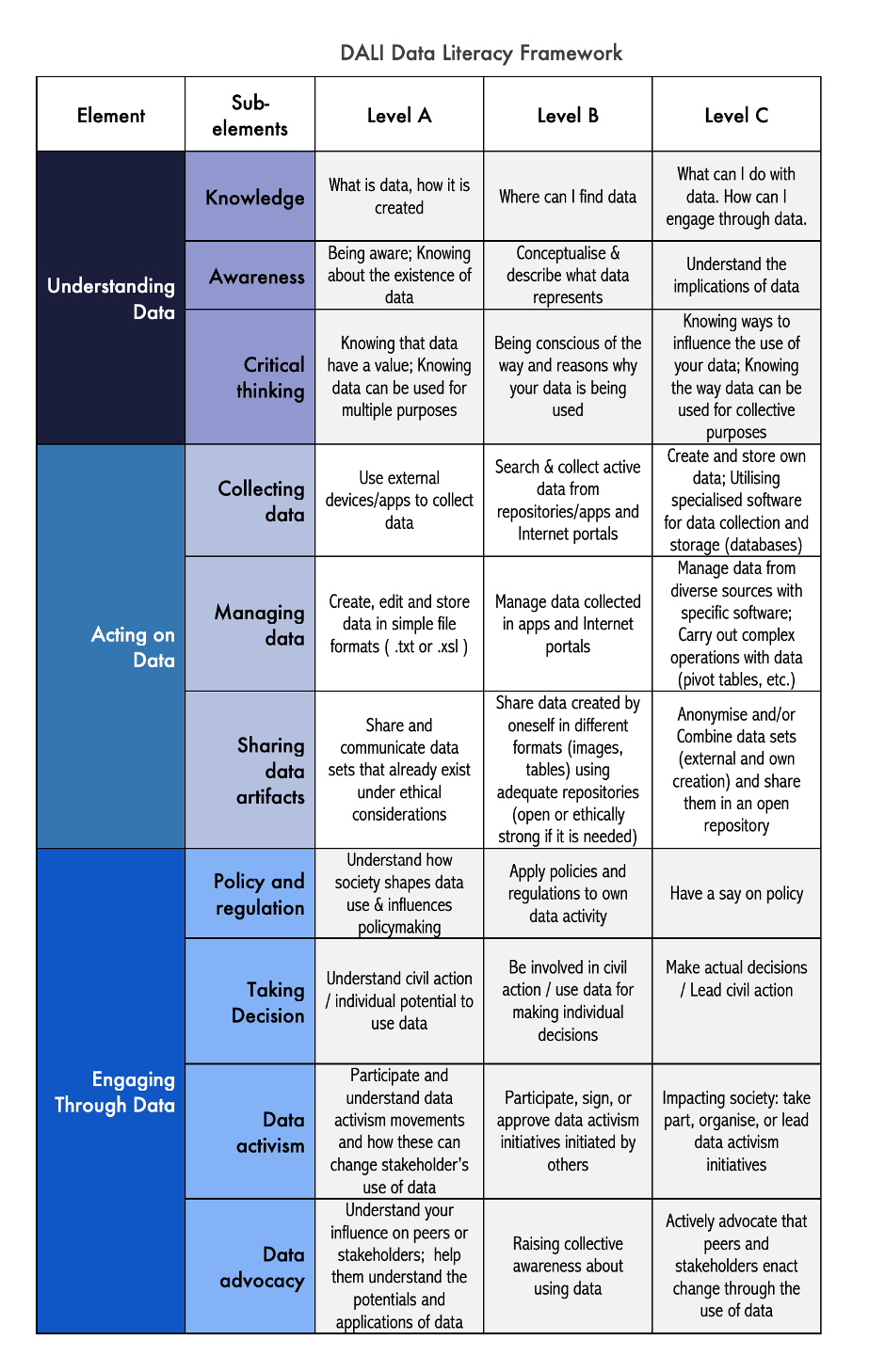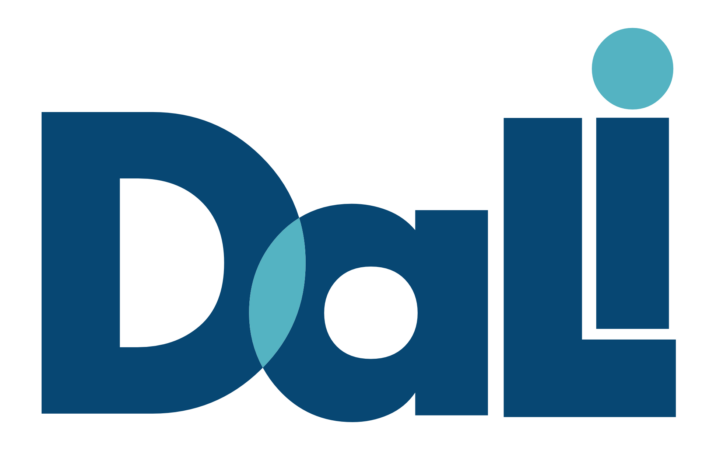DALI DATA LITERACY FRAMEWORK For Adults
The framework is available in English, German, Norwegian, and Spanish
Data literacy is about the competences people need to engage with and use the data encountered in everyday life. It implies finding ways to make data informed decisions both in everyday life and in various contexts, according to personal or collective goals.
Data literacy includes understanding what data is and having an awareness and attitude towards non-neutrality/biased data (collection, etc.). It implies having the skills to collect, select, store, preserve and manage data; analyse, evaluate, interpret, critique, apply, use, and work with data; and represent, visualise, and communicate stories from data. It also encompasses having the competence to ask and answer questions from data sets through an inquiry process.
Furthermore, Data literacy means having the knowledge to critically make judgements and interrogate the claims accompanying data, including ethical and legal aspects that affect ones and other people’s rights. It also includes the ability to use data as part of a design process, to solve problems, and to take decisions.
The DALI Data Literacy Framework for Adults describes the competences that characterise a data literate citizen. In particular, it specifies the knowledge & skills and the indicators of progressive levels of expertise (from basic to advanced) that can be addressed when developing courses, materials, or games for citizens.
The DALI Data Literacy Framework for Adults comprises three main elements:
- Understanding Data
- Acting on Data
- Engaging Through Data
and a fourth transversal element: Ethics & Privacy, of which aspects can be found in each of the three main elements. Furthermore, it specifies the indicators of progressive levels of expertise for each of the three main components.


